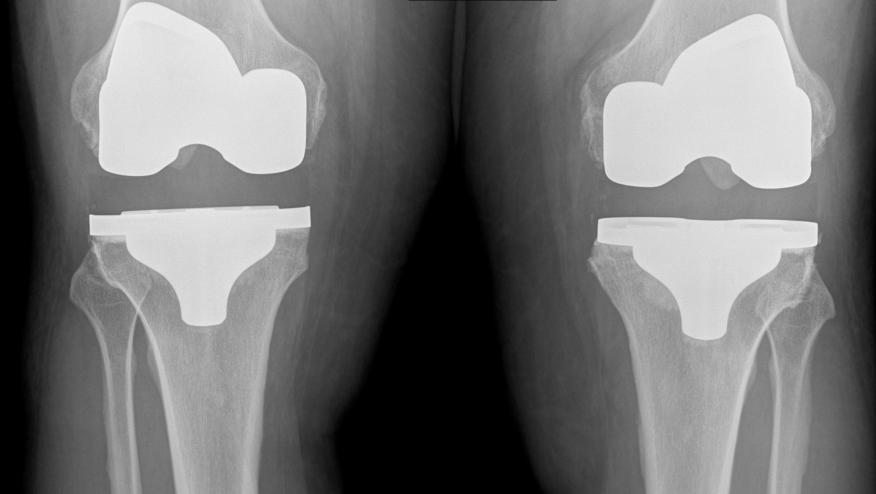Colchicine and the Risk of Knee and Hip Replacement Save

Treatment of osteoarthritis (OA) is a major unmet need, as there are few therapies effective at pain control and no options for disease modification; yet a new trial in Annals of Internal Medicine suggest that chronic low dose colchicine may alter disease progression and lower the risk of of total knee (TKR) and total hip replacements (THRs).
Previously published in the NEJM, the LoDoCo2 trial was a 43 center, multinational (Australia and the Netherlands) trial and showed that compared to placebo, colchicine 0.5 mg significantly lowered the rate of a primary cardiovascular endpoint (CV death, myocardial infarction, ischemic stroke or ischemia-driven coronary revascularization) in high risk chronic coronary disease patients (9.6% vs 6.8% COL; HR 0.69; P<0.001).
The study enrolled 5,522 CV patients to receive colchicine (2,762) or placebo (2,760) once daily. This retrospective, exploratory subanalysis looked at the effect of COL intervention on the time to first TKR or THR.
With a median follow-up of 28.6 months, TKR or THR was performed in 68 patients (2.5%) in the colchicine group and 97 (3.5%) in the placebo group (incidence rate, 0.90 vs. 1.30 per 100 person-years; hazard ratio, 0.69 [CI, 0.51 to 0.95]). Similar results were seen if they excluded patients with baseline gout and those with TKR/THR in the first 3 and 6 months of follow-up.
These results are most applicable to men as there were too few women undergoing TKR/THR to accurately assess their risk. As this study was not designed to assess OA, TKR, THR outcomes, there is no data on the cohort incidence of baseline osteoarthritis, joint pain or functional limitation.
These results are surprising as many studies have failed to show any benefit of colchicine in treating hand, knee or hip OA, including a recent metanalysis of 9 RCTs, 847 knee OA patients showing no benefit of colchicine in reducing pain and improving physical function in the overall cohort of hand/knee OA patients.
In this exploratory analysis of the LoDoCo2 trial, use of colchicine, 0.5 mg daily, was associated with a lower incidence of TKR and THR. Further investigation of colchicine therapy to slow disease progression in osteoarthritis is warranted.










If you are a health practitioner, you may Login/Register to comment.
Due to the nature of these comment forums, only health practitioners are allowed to comment at this time.